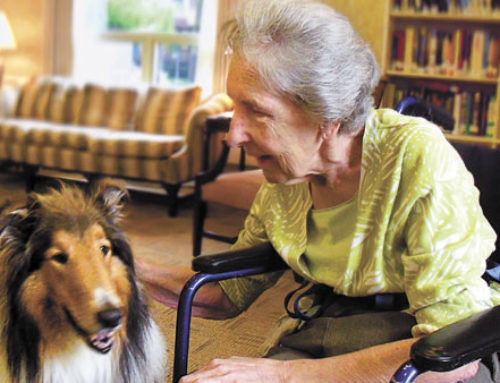Malnutrition happens when the body isn’t able to get enough nutrients from food. This serious health condition can cause lack of energy and strength, weight loss, and even memory issues. Our bodies need carbohydrates, fat, protein, and vitamins from food to sustain our health. Proper nourishment is important for everyone but can be even more so for older adults or those who are chronically ill. Malnutrition can be the result of not eating enough or not being able to properly absorb nutrients in food. How can you prevent malnutrition in seniors?
Help Them Adopt a Healthier Diet
Malnutrition can be the result of chronic disease or lack of resources when it comes to shopping for and cooking healthier, nutrient-dense foods. Consider taking your loved one shopping and cooking with them. Have them choose snacks that they enjoy as a way to get in extra calories between meals. Eating smaller meals throughout the day can be beneficial for seniors who get full easily and can’t eat larger meals. Examples of nutrient-rich foods include salmon, liver, kale, garlic, blueberries, and eggs. When visiting your loved one, always check the fridge and be aware of changes in weight that could signal they aren’t eating enough to sustain their health.
Talk to Their Doctor About Supplements
Seniors are more at risk to be deficient in certain nutrients, especially if they have a chronic health condition. Common vitamins older adults may be deficient in include:
- Vitamin B6,B9(Folate), B12. Exists in animal products such as meat, eggs, and milk.
- Vitamin C. Found in many fruits and vegetables, especially oranges and peppers.
- Vitamin D. Foods such as fatty fish and mushrooms contain vitamin D, but you can also get it from natural sunlight exposure. (Low levels of Vitamin D are linked to cognitive decline)
- Essential fatty acids. These healthy fats may play an important role in cognitive health and are found in nuts, fish, and oils.
A simple blood test can tell if your loved one is lacking in any nutrients. Their doctor can suggest foods they need to be eating more of, or even supplements that could benefit their health.
Encourage Social Activities and Exercise
For many people, eating is a social ritual, and with no one to eat with, older adults may not eat as much. Loss of a spouse or a close family member can affect nutrition in seniors. Social activity can stimulate appetite and help prevent depression, which can cause some people to eat less. Encourage your loved one to attend social events or to eat with friends and neighbors who may also be eating alone. Regular exercise can also increase appetite and can be a social activity as well! Finances are another reason older adults may not eat as much, so keep this in mind when encouraging them to go out. Many restaurants offer discounts for seniors, and free exercise events and activities are often held in communities.
What to Do If You Suspect Malnutrition
If you believe a loved one is suffering from malnutrition, schedule an appointment with their primary care provider. He or she can evaluate their weight, health, and nutrient intake to recommend a plan for moving forward. If you’re seeing signs of severe malnutrition such as cognitive decline, fatigue, and dizziness, seek urgent medical care.





